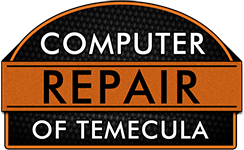Spyware are tricky, damaging programs that secretly record all of your computer activities. Not all spyware is bad, of course. Some companies use it for legitimate purposes. However, most spyware does have malicious purposes. Spyware’s goal it to find all of your passwords, credit card information, and banking credentials. It pretty much wants all of the information you want and need to keep private. Spyware then sends that private information to fraudulent scammers.
SEE ALSO: Data Backup in Temecula Murrieta
It is termed “spyware” because the programs’ purposes are hidden. It has an added function that is designed to “spy” on you, monitoring all of your activities and reporting it back to its source. Originally, spyware was intended as a marketing aid, or it was used to monitor the usage for purposes such as licensing. Its earliest versions usually only reported to the authors each time a particular program was used. Not too much harm there. It is still often used for these purposes. However, spyware can cause a lot of harm in the modern age.
Another dangerous aspect of spyware is that people often are not aware that it is on their computer. It is usually a silent threat that accompanies programs you typically use. Commonly, they are distributed as “freeware” and “shareware,” with programs such as Limewire that connects you to thousands of other computers and users. These programs have very minimal license requirements so it is easy for them to trap a large number of people.
So, how do you protect yourself from such a silent, dangerous threat? First of all, do not unwittingly install spyware. These days, shareware download sits test the programs submitted to them and offer guarantees that they are free of spyware. You don’t want to trust everyone, though. If it is a well-established site, you can trust it more easily because it must maintain its reputation. If it is a lesser known or an unfamiliar site, try reading reviews and researching information about it before using it.
Anti-spyware tools are also available to help protect you from the threat. Many of these tools are high quality, and some are even freeware themselves. These tools regularly download updates to stay abreast of newly- emerging spyware. Some of them can run in the background all of the time without causing your computer to run slower. However, you must be careful with the anti-spyware that you use. Some imposters pose as anti-spyware, but they can actually be spyware. These usually trick people through spam or even on the phone. Usually, these have extortion purposes. They can keep popping up in windows, making you unable to work on your computer. They can also encrypt your hard disk, making it impossible for you to read your data. Again, reviews are really helpful here.
